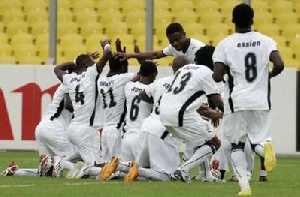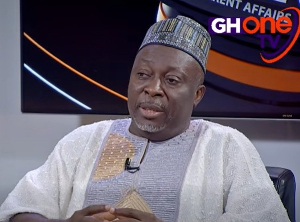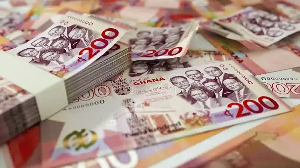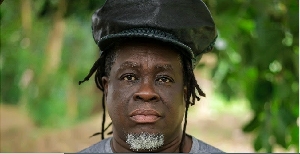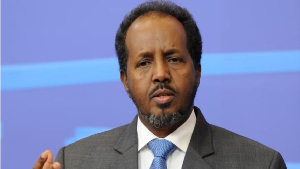This has been the million dollar question that every pundit of the game would ask and indeed has been asking since Cameroon’s heroic run to the 1990 World Cup quarterfinal.
Indeed, after that tournament, when asked this same question, Cameroon legend Roger Milla responded by saying, “Wait until you have seen Ghana.”
Of course it took sixteen years before Ghana, who had already won two World titles at Under 17 level and been runners up at the World Youth level twice, as well as being the first African nation to win a football medal at the Olympics, made her debut on the World stage. Perhaps doing some step-by-step analysis might help.
1982: An African renaissance begins
Back in 1982, Algeria had a truly exciting team and with the likes of Lakhdar Belloumi, Ali Fergani and Rabah Madjer in tow, were favorites for the African Nations Cup trophy. It took the grit and determination of a Ghana side led in attack by George Alhassan to beat them 3-2 in the semifinal, but the potential of the team was not in doubt and a stunning 2-1 win over West Germany at the 1982 World Cup made everyone sit up and take notice.
Unfortunately for the desert Foxes, a 0-2 loss to Austria in the next match proved crucial because even though the team secured a 3-2 win over Chile in its last group game, the infamous 1-0 win West Germany posted over Austria ensured that both teams made it through to the next stage at the expense of Algeria, who were edged out on goal difference.
That tournament was Cameroon’s first ever World Cup, and with the likes of Thomas Nkono, who was voted that year’s African Footballer of the year, Roger Milla, Theophile Abega, Emmanuel Kunde and Gregoire M’bida, the Lions became the first African nation not to lose a World Cup game. Goalless draws against Peru and Poland were followed by a 1-1 draw with eventual champions Italy. That run earned the team the moniker, “the Indomitable Lions.” The results sequence also saw Cameroon edged out, again on goals scored.
So in short Algeria was unlucky, whilst Cameroon scored only once. It meant some end product would be required to get an African team past the first round.
1986: Morocco leads the way
Four years later, Algeria and Morocco represented African at the World Cup in Mexico. The Desert Foxes were not as impressive as they were four years earlier and it showed on the pitch. After a 1-1 draw with Northern Ireland, a 0-1 loss to Brazil and a 0-3 loss to Spain meant that Algeria would return home early.
Morocco came to the competition with Zaki Badou, who was by then the best goalkeeper on the African continent, Aziz Bourderbala and Mohammed Timoumi, who won the 1985 African Champions Cup with FAR Rabat. The Atlas Lions went on to top a group that contained eventual quarterfinalists England, Portugal and Poland, with a 3-1 win over Portugal proving decisive after two opening goalless draws. So Morocco became the first African team to reach the second round.
The Atlas Lions were up against West Germany, who had themselves scraped through their group. It soon became West Germany against Badou, who was in superb form for that game. He pulled off save after save and single handed kept Morocco in the game. Unfortunately, Morocco lacked bite up front and they paid dearly when, five minutes from the end, a long range shot from Lothar Matthaus ended their resistance. Once again, not scoring enough goals proved Africa’s undoing.
1990: The Roger Milla show
Four years later, Cameroon returned to the World stage with mixture of experience and youth. The likes of Nkono, Kunde, Stephen Tataw, and Milla blended with the Biyick brothers (Francois and Andre), Cyrille Makanaky, Eugene Ekeke and Bertin Ebwelle amongst others.
No one expected a result of any kind against then World champions Argentina but that is exactly what happened, with Francois Oman Biyick’s headed spilled home by Nery Pumpido. Even though Andre Kana Biyick and Benjamin Massing were both sent off for serious foul play, Cameroon was able to close them game out and beat Argentina 1-0 in a result that shocked the World.
The rest of Cameroon’s tournament became the Roger Milla show, with the veteran striker coming off the bench to score twice against Romania. The result ensured that Cameroon made it to the second round despite a 0-4 loss to the Soviet Union.
The second round clash against Colombia went into extra time after a scoreless 90 minutes. Roger Milla did it again; coming off the bench to score two decisive goals that sent the Indomitable Lions into the quarterfinals and his dance became iconic. Cameroon was the first African team to make it into the last eight and in probably one of the best games in the competition, they battled England.
Even though David Platt had put England a goal ahead and Oman Biyick had missed a golden opportunity to level the scores, England conceded a penalty in the second half which was expertly converted by Emmanuel Kunde. Milla had by then come on and he played his part in setting up Eugene Ekeke for the second goal.
At that stage, it looked like Cameroon would march on, but catastrophic defending proved their undoing. The Indomitable Lions conceded two penalties, both of which were dispatched by Gary Lineker and once again, the African dream was over.
Egypt came to the 1990 World Cup with one of African’s best goalies in Ahmed Shobeir, emerging centre back Hany Ramzy, full back Ibrahim Hassan and twin brother Hossam, who played up front. Two draws with the Republic of Ireland and the Netherlands meant the Pharoahs were still in the competition, but a Mark Wright header ensured that Egypt lost 0-1 to England in the final group game.
The lessons learnt were that African sides may be talented but still needed more organisation and tactical awareness, not to mention how to tackle cleanly; an issue that clearly affected Cameroon.
1994: Super Eagles soar, but only briefly
Four years later, Nigeria made its debut on the World stage in the United States. The Super Eagles had just won the African Nations Cup and had a powerful team, with the likes of “goalsfather” Rashid Yekini, Finidi George, Emmanuel Amunike, Augustine Okocha, Daniel Amokachi, Mutiu Adepoju, Augustine Eguavoen, Sunday Oliseh and Ben Iroha amongst others.
The campaign began with a brilliant 3-0 win over eventual semifinalists Bulgaria, and even though a minor setback was suffered when the team lost 1-2 to Argentina, a 2-0 win over Greece saw Nigeria earn a second round ticket to face Italy. Amunike scored early on, but the art of closing the game out proved too much for Nigeria and Roberto Baggio struck twice to win the game for the Azzuri.
Cameroon came into the competition considerably weaker that the squad that thrilled the World four years previously. A 2-2 draw with Sweden was followed by a 0-3 defeat to eventual World Champions Brazil and a 1-6 hammering at the hands of Russia. Morocco lost all three games and so once again, the African dream ended.
1998: Nigeria outclasses Spain but lose out to Denmark
On now to 1998 which saw South Africa make its debut on the World stage. Morocco qualified for its second consecutive World Cup and hopes were high, especially with the likes of Salaheddine Bassir and Mustapha Hadji in the squad. However, a 2-2 draw with Norway proved decisive because a 0-3 loss to Brazil affected the chances of the Atlas Lions, because a 3-0 win over Scotland wasn’t sufficient enough to get the team through to the next round, especially when Norway beat Brazil 2-1.
Cameroon’s campaign began with a 1-1 draw with Austria. A 0-3 loss to Italy practically ended the hopes of the Indomitable Lions because a 1-1 draw with Chile wasn’t enough to get them through to the second round.
Nigeria’s campaign began with a memorable 3-2 win over win over Bulgaria. It was a game that went from end to end and the Super Eagles went behind twice, but after Garba Lawal made it 2-2, Sunday Oliseh scored a brilliant screamer to win the match.
Nigeria beat Bulgaria 1-0 in the second game. Victor Ikpeba scored the goal and he was seen as a key player for the Super Eagles, as was Nwankwo Kanu, Celestine Babayaro and Wilson Oruma, all members of Nigeria’s Under 17 World Cup winning squad five years earlier. A 1-3 loss to Paraguay was wrongly seen as a bad day at the office.
It was a stark warning because the Nigerian backline was not solid enough and Peter Rufai wasn’t as good as he was four years previously. Denmark was ruthless in punishing Nigeria for their failings with a comprehensive 4-1 thrashing and so that was it.
South Africa made its debut at the 1998 World Cup but the first game was against the hosts and eventual champions France, who romped to a 3-0 victory. A 1-1 draw with Denmark was followed by a 2-2 draw with Saudi Arabia.
Tunisia suffered losses to England and Colombia before securing a 1-1 draw with Romania.
2002: Senegal makes remarkable debut
2002 saw Senegal make their debut and the Teranga Lions did so in spectacular style. After finishing as runners up in the 2002 African Nations Cup, even with the likes of Khaliliou Fadiga, El Hadji Diouf, Henri Camara and Papa Bouba Diop, few would have expected Senegal to beat then World champions France 1-0 in the opening match.
That is what happened, with Diop the scorer. A 1-1 draw with Denmark and a 3-3 thriller with Uruguay saw Senagal through to the second round, where Henri Camara scored in extra time to hand the Teranga Lions a 2-1 victory. Senegal faced Turkey in the quarterfinals and after a goalless 90 minutes, Ilhan Mansiz scored in extra time to end Senegal’s dreams. A lack of killer instinct proved the Teranga Lions’ undoing.
Amodu Shaibu qualified Nigeria for the competition, but he was fired and replaced by Festus Oningbinde. Nigeria lost 0-1 to Argentina and 1-2 to Sweden, managing only one point from three games after a 0-0 draw with England.
South Africa opened their campaign with a creditable 2-2 draw with Paraguay and after beating Slovenia 1-0, many felt that Bafana Bafana would make the second round. Unfortunately a 2-3 loss to Spain ended South African hopes
Cameroon began its campaign with a 1-1 draw against the Republic of Ireland, with Robbie Keane scoring at the death to deny the Indomitable Lions a crucial victory. A 1-0 win over Saudi Arabia set Cameroon up nicely, but a 0-2 loss to eventual finalists Germany finished their hopes of making it into the next round.
Tunisia had a bad tournament, with a 1-1 draw with Belgium sandwiched by 0-2 losses to Russia and Japan.
2006: Ghana shines for Africa
After years of waiting, Ghana made its debut at the World Cup and so did three other debutants; Cote D’Ivoire, Angola and Togo. Tunisia was the only African team on show with any World Cup experience. The Black Stars of Ghana recovered from an initial 0-2 loss to eventual champions Italy to defeat the Czech Republic 2-0 and the United States 2-1, qualifying the Black Stars for a second round clash with Brazil. Tactical naivety meant that whilst Ghana had majority of possession, the high defensive line allowed Brazil to score three times to win 3-0. Asamoah Gyan, scorer of Ghana’s first ever World Cup goal was also sent off in that defeat.
Cote D’Ivoire was in a very tough group and it showed. After losing 1-2 to Argentina and the Netherlands, the Elephants defeated Serbia and Montenegro 3-2 in a five goal thriller, but were eliminated.
Angola showed glimpses of potential, even though the Black Antelopes failed to make the second round. A 0-1 loss to Portugal was followed by a 0-0 draw with Mexico and a 1-1 draw with Iran.
Stephen Keshi qualified Togo for the World Cup, but was fired after a poor 2006 African Nations Cup. Otto Pfister replaced him but there were a lot of issues over player bonuses and in the end, Togo lost all three Group games at the tournament.
Tunisia began with a 2-2 draw with Saudi Arabia, but losses to Spain and Ukraine ended the hopes of the Carthage Eagles.
2010: Ghana denied by the ‘hand’ of Suarez
Four years later, in South Africa, six African nations represented the continent. Ghana’s Black Stars were expected to be the shining lights once again, whilst Nigeria and Cameroon made returns to the competition after missing out on 2006. Cote D’Ivoire also made it through, as did Algeria for the first time since 1986.
Ghana began with a 1-0 win over Serbia and a 1-1 draw with Australia. A 0-1 loss to Germany did not stop Ghana from qualifying for the second round, even though the Black Stars were helped by Serbia’s 1-2 loss to Australia. A memorable 2-1 win over the United States in extra time saw Ghana move through to the quarterfinals for the first time. After Sulley Muntari had given Ghana the lead against Uruguay, Diego Forlan responded with a free kick that beat Richard Kingson for the equalizer. With virtually the last kick of the game, Luis Suarez kept out a goal bound header by Dominic Adiyiah. Asamoah Gyan’s penalty crashed against the cross bar and the game eventually went to penalties, which Ghana lost.
Cote D’Ivoire once again had a tough group to negotiate, and after a 0-0 draw with Portugal, the Elephants lost 1-3 to Brazil. A 3-0 win over North Korea wasn’t enough to see the Ivorians through to the next stage.
Nigeria sacked Amodu Shaibu after he qualified them for the competition, with Lars Lagerback leading the charge. The Super Eagles, despite the heroic attempts of Vincent Enyeama, lost 0-1 to Argentina. A 1-2 loss to Greece ended the hopes of the Super Eagles, who finished their campaign with a 2-2 draw with South Korea.
Algeria failed to score a goal in the competition, losing 0-1 to Slovenia; drawing 0-0 with England and losing 0-1 to the United States.
Cameroon lost all three games at the World Cup and were a pale shadow of their former selves.
Host South Africa began brightly and drew 1-1 with Mexico, but a 0-3 loss to Uruguay proved their undoing. A 2-1 win against France was not enough to get them into the second round.
Problems bedeviling African teams
With all this as a background, some of the reasons why no African team has made it beyond the quarterfinal stage at any World Cup tournament are as follows
Tactical naiveté has been a major problem for most African teams. African players like to express themselves but are sometimes not organized enough and they sometimes tend to ignore tactical instructions, that ultimately costs the team.
Goal scoring is still a problem for most African teams. Ghana for instance failed to make the semifinal in 2010 because of an inability to score more than one goal within 90 minutes. The same problem stopped Morocco from progressing in 1986 and Nigeria in 1994.
Refined defending is still an art yet to be mastered by most African teams. As a result, pacey teams are able to beat African teams with the minimum of fuss. If Rigobert Song could be red carded in three World Cup tournaments, that says it all really and it was obvious that a lack of refined defending cost Cameroon at the 1990 World Cup.
Interference from federations also affects African teams. Cameroon is a prime example, with the country’s football governing body, FECAFOOT, playing a role in creating divisions within the team. Bonus issues also affect team performance as was evidenced by Togo during the 2006 World Cup.
Instability with regard to coaching is also a problem, with the likes of Nigeria prime examples. Sacking coaches who have qualified the team for the World Cup has never yielded the required results and sometimes you get the feeling that African teams never learn.
There is also tactical inflexibility at times, as Ghana showed during the 2010 World Cup. The 4-2-3-1 formation employed by Milovan Rajevac was rigidly employed and that was a reason why there was no real fluidity in Ghana’s attacks in South Africa.
What African teams need to do
So with all this, can an African team win the World Cup? I believe it is possible if more African nations can be tactically organized and flexible with regards to formations. Also it is important for countries to defend and attack as a team and that makes a team difficult to beat.
Goal scoring is an area that needs to be worked upon. Creation of chances is not an issue because African players are among the best in the World now, but finishing them off remains a challenge and that needs to be sorted out.
Indigenous coaches will need a lot of capacity building from the various football federations so that the tactical discipline learned from Europe can be married with the natural skill and talent of African players.
The interference from Football federations must stop! Coaches should be given a longer time to work with the players and preferably, indigenous coaches should be encouraged.
With some of these anomalies addressed, maybe one day an African team can win the World Cup. Can it happen in Brazil? I hope it does and I hope it will be Ghana, but objectively, your guess will be as good as mine.
Sports Features of Tuesday, 19 November 2013
Source: christopher opoku/footy-ghana.com

